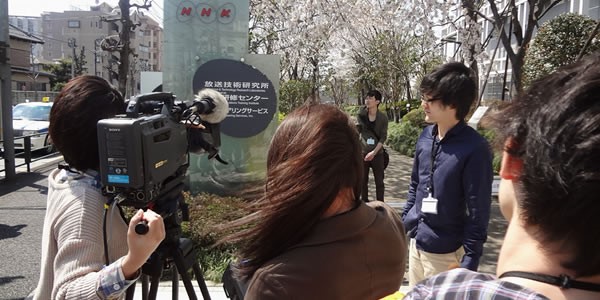As the Ghana Broadcasting Corporation (GBC) undergoes a transformation drive, the training of its journalists will play an essential role in the broadcaster meeting its public service mandate.
Training is an important element of a career in journalism. In recent years there has been an increase in the number of journalists who do not receive any formal training, particularly for many citizen journalists. But training is a key contributor to responsible, ethical, and accurate journalism.
In its 2014 research “Emerging skills for journalists”, the UK-based National Council for the Training of Journalists notes, “Whatever the changing media environment, there are some constants of what employers expect from journalists and the core skills of journalists remain as important as ever. Journalists still need, and all indications are that they will continue to need, (i) the ability to write with clarity, accuracy and flair, (ii) curiosity and a broad general knowledge and (iii) the skills to communicate effectively with a wide range of different people.”
At GBC, training to improve these very skills is a priority. For the broadcaster, high quality journalism and the viability of the business side of public media go together. It’s a strategy being undertaken as part of the broadcaster’s transformation drive – GBC’s push to become more relevant in the current media landscape and set out a clear identity for itself.
In October 2021, GBC training in multi-skilled journalism and digital content production went to 50 of its staff. As part of the programme, they were exposed to the latest digital newsgathering and dissemination tools. GBC plans to integrate more new media into its operation with a commercial benefit also. It is hoped that improving the quality of news and strategic content publication will help GBC attract more business.
According to Director General, Professor Amin Alhassan, the recent training’s objective was to “help provide news content in an efficient and cost-effective way across all platforms while enhancing our public service broadcasting mandate.”
“We can only justify this investment if we use the acquired skills to improve content and service delivery,” Head of GBC News, Akushika Acquaye, added.
Training is also necessary in the increasingly competitive field of journalism. As Joyce Anim-Ayeko, Head of Training Schools at the Ghana Broadcasting Corporation, told the Public Media Alliance (PMA), training is imperative “to keep abreast of the changing trends in the profession and to compete effectively.”
But training efforts go beyond building necessary practical journalistic skills. Public broadcasters are also focusing on specialisations in beats and improving how journalists report in specific areas such as science, education, and culture.
“The staff of the TV and radio training schools have their specialisations and have not been given any further training to equip them in beat training. The schools focus more on programming than beat reporting,” she said.
GBC’s internal training efforts are instead focused on political reporting. The public broadcaster trains about 100 journalists, and primarily focuses on those who will be out in the field reporting on elections and politics.
“This has been a focus because of the politicisation of the profession of journalism in Ghana. With the advent of multiparty democracy in 1992, most media organisations and personnel have been pigeonholed. It is to prevent the perceived bias that journalists are continually being trained in political reporting,” Amin-Ayeko said.
She admitted that GBC wishes to train its journalists across all beats, especially those that are not prominent on the airwaves. However, lack of funds and local resources are holding back this vision. Political reporting has not always been the priority. Previously, there was a broader range in target beats due to opportunities for training in other countries. But she said with the expansion of the European Union, training opportunities and scholarships for African countries have reduced.
Being a public media organisation also brings with it a greater responsibility for journalistic training, Amin-Ayeko said.
“Being the oldest in the field of broadcasting, we are the benchmark in the industry. It is pertinent that there is regular and sustained training if we are to continue to lead the pack.”
And this influence is now being extended wider than Ghana. Just last week, GBC trained staff from the Liberian Broadcasting Service (LBS) in a five-day programme aimed at passing on skills in contemporary broadcasting. Areas of focus included broadcast technology, news production, marketing strategies, and online journalism.
In speaking on the importance of public broadcasters collaborating to better serve the public, Professor Alhassan said it must be ensured that “the public service broadcaster is seen as the trailblazer, the leaders, of journalism and broadcasting.”
Public media training elsewhere
GBC is just one public media organisation that has recognised the importance of journalistic skills training. While some, like LBS, receive some external training, others have in-house training. At NHK for instance, skills development is seen as support for public broadcasting. For staff training, the broadcaster offers five experience levels of training, ranging from those for new recruits to managers. NHK’s offer of practical training is extensive, such as at the professional training level where there are more than 50 curriculums. Open to broadcasters nationwide, its aim is to develop professional skills that “can respond to the latest diversifying broadcasting and viewer services”. While training is open to the entire corporation, it undoubtedly benefits all those involved in the news-gathering process.
The Japanese public broadcaster also conducts an overseas dispatch system which sees staff heading to international broadcasting-related organisations, research institutes, universities, and companies to acquire higher professional abilities. NHK also offers subsidies for staff self-development and overseas internships.

Meanwhile, at NPR, there is also a focus on journalistic skills training. The training department’s mission is to elevate the quality of public media journalism. “We train public media journalists of all levels — from interns to international correspondents — in the values and best practices that guide NPR’s journalism,” NPR said.
Some of NPR’s training resources are publicly available: on its website there are several journalistic articles, focusing on skills useful for audio, television, and print journalists. The COVID-19 pandemic has also seen the training department offering useful resources, such as insights for reporting from home and responsible word choices. But it doesn’t need to just be public media organisations which offer such services. The Canadian Association of Journalists recently released a whole page of resources to be used by reporters to arm themselves against online abuse. The putting together of such educational tools is a reflexive, fast, and comparatively easy method of training journalists against one of the most contemporary of issues facing journalists today.

For public media, training is particularly relevant since it lends to high-quality journalism and better serves the public to which public media are beholden. With a responsibility to the citizenry, public media must ensure that their journalists are trained to better meet public media values through high quality news and outputs.
Header Image: Filming GBC’s Breakfast Show. Credit: Ghana Broadcasting Corporation / Facebook
